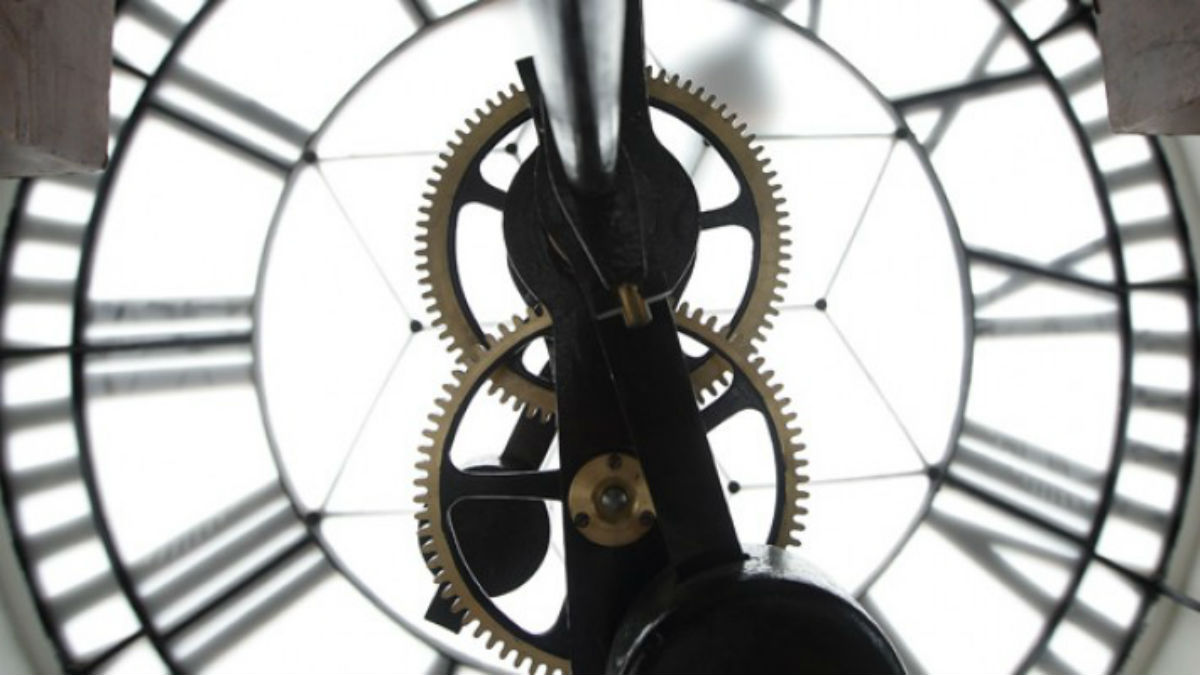Why the Doomsday Clock is stuck near 12
Climate change and risk of nuclear war keep symbolic timepiece at three minutes to midnight

A free daily email with the biggest news stories of the day – and the best features from TheWeek.com
You are now subscribed
Your newsletter sign-up was successful
The so-called Doomsday Clock will remain set at three minutes to midnight, meaning the world is sitting on the brink of global catastrophe, amid major threats such as nuclear proliferation and climate change. The metaphorical timepiece measures the likelihood of a global disaster, with the minute hand assessed each year by the Bulletin of the Atomic Scientists. The group of international experts, who weigh the different threats to humanity, said their decision to stand the clock still in 2016 was "not good news".
Nuclear war
The Doomsday Clock was set up in 1947, in the wake of the bombing of Hiroshima and Nagasaki. Concerns over nuclear weapons have always been one of the driving forces behind changes to the notional timepiece - the agreement struck between Iran and six world powers last year was seen as a major step forward in the battle against nuclear proliferation and should be cause for celebration.
The Week
Escape your echo chamber. Get the facts behind the news, plus analysis from multiple perspectives.

Sign up for The Week's Free Newsletters
From our morning news briefing to a weekly Good News Newsletter, get the best of The Week delivered directly to your inbox.
From our morning news briefing to a weekly Good News Newsletter, get the best of The Week delivered directly to your inbox.
However, North Korea's claims earlier this year that it had successfully tested a hydrogen bomb sent shockwaves around the world. If confirmed, it represents a dramatic escalation in the country's nuclear capacity. "As long as nuclear weapons are considered a legitimate way to provide for national security, all of humanity remains at risk from the most dangerous technology on Earth," said the Bulletin of the Atomic Scientists.
Intelligent machines
Stephen Hawking is among a number of esteemed scientists to have warned that the successful development of artificial weapons could spell the end of the human race. Last week, the British physicist said advancements in science and technology were putting humanity at risk of self-annihilation by creating "new ways things can go wrong".
Climate change
A free daily email with the biggest news stories of the day – and the best features from TheWeek.com
Global warming remains one the largest threat to humanity, despite the historic deal signed between 195 nations in Paris in December. Experts welcomed the agreement, but warned it is nowhere near enough to avoid dangerous climate change.
-
 Bondi, Democrats clash over Epstein in hearing
Bondi, Democrats clash over Epstein in hearingSpeed Read Attorney General Pam Bondi ignored survivors of convicted sex offender Jeffrey Epstein and demanded that Democrats apologize to Trump
-
 Are Big Tech firms the new tobacco companies?
Are Big Tech firms the new tobacco companies?Today’s Big Question Trial will determine if Meta, YouTube designed addictive products
-
 El Paso airspace closure tied to FAA-Pentagon standoff
El Paso airspace closure tied to FAA-Pentagon standoffSpeed Read The closure in the Texas border city stemmed from disagreements between the Federal Aviation Administration and Pentagon officials over drone-related tests